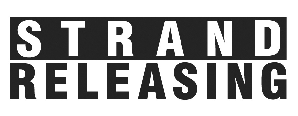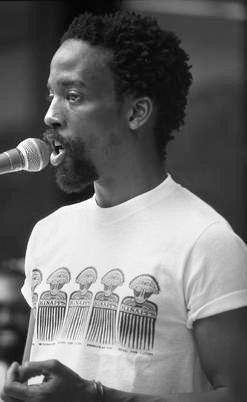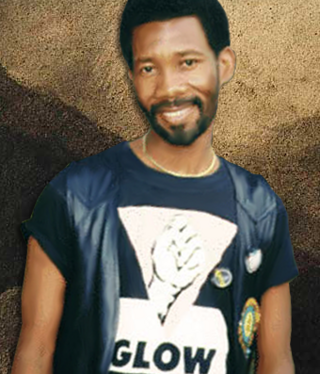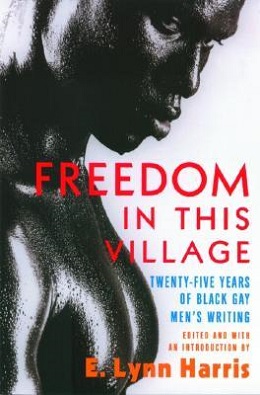An African American is a citizen or resident of the United States who has origins in any of the black populations of Africa. African American-related topics include:

Marlon Troy Riggs was a Black gay filmmaker, educator, poet, and activist. He produced, wrote, and directed several documentary films, including Ethnic Notions, Tongues Untied, Color Adjustment, and Black Is...Black Ain't. His films examine past and present representations of race and sexuality in the United States. The Marlon Riggs Collection is open to the public at Stanford University Libraries.

Paris Is Burning is a 1990 American documentary film directed by Jennie Livingston. Filmed in the mid-to-late 1980s, it chronicles the ball culture of New York City and the African-American, Latino, gay, and transgender communities involved in it.

Strand Releasing is an American film production company founded in 1989 and is based in Culver City, California. The company has distributed over 300 auteur-driven titles from acclaimed international and American directors such as Apichatpong Weerasethakul, Gregg Araki, François Ozon, Jean-Luc Godard, Catherine Breillat, Claire Denis, Fatih Akin, Aki Kaurismäki, Claude Miller, Manoel de Oliveira, Gaspar Noé, André Téchiné and Terence Davies.

Tongues Untied is a 1989 American video essay experimental documentary film directed by Marlon T. Riggs, and featuring Riggs, Essex Hemphill, Brian Freeman. and more. The film seeks, in its author's words to, "...shatter the nation's brutalizing silence on matters of sexual and racial difference."
Deep Dickollective (D/DC) was an LGBT hip hop group based in Oakland, California that were active in the homo hop scene of openly queer/LGBT artists during the 2000s. They were regular performers at the PeaceOUT World Homo Hop Festival curated by group co-founder Juba Kalamka.

Essex Hemphill was an openly gay American poet and activist. He is known for his contributions to the Washington, D.C. art scene in the 1980s, and for openly discussing the topics pertinent to the African-American gay community.

Simon Tseko Nkoli was an anti-apartheid, gay rights and AIDS activist in South Africa. Active in the Congress of South African Students (COSAS), the United Democratic Front, and the Gay Association of South Africa (GASA), he was arrested as part of the Delmas Treason Trial in 1984. After his release in 1988, he founded the Gay and Lesbian Organisation of the Witwatersrand (GLOW) and organized South Africa's first pride parade. His activism influenced the African National Congress (ANC) to enshrine gay rights in the South African constitution. One of the first South Africans to disclose that he was living with HIV/AIDS, Nkoli founded the Township AIDS Project. After his death from AIDS-related complications, his colleagues established the Treatment Action Campaign.

Clayborne Carson is an American academic who was a professor of history at Stanford University and director of the Martin Luther King Jr., Research and Education Institute. Since 1985, he has directed the Martin Luther King Papers Project, a long-term project to edit and publish the papers of Martin Luther King Jr.
BLK was a monthly American newsmagazine, similar in format to Time and The Advocate, which targeted its coverage of people, events and issues to African-American LGBT readers.

Thomas Allen Harris is a critically acclaimed, interdisciplinary artist who explores family, identity, and spirituality in a participatory practice. Since 1990, Harris has remixed archives from multiple origins throughout his work, challenging hierarchy within historical narratives through the use of pioneering documentary and research methodologies that center vernacular image and collaboration. He is currently working on a new television show, Family Pictures USA, which takes a radical look at neighborhoods and cities of the United States through the lens of family photographs, collaborative performances, and personal testimony sourced from their communities..
Anthem is a nine-minute music video released in 1991. The film was produced and directed by Marlon T. Riggs. The film displays mixes images of mainstream African-American pride, such as traditional African tribal dances, alongside images representing gay pride, such as ACT UP's "Silence=Death". The film uses powerful imagery and poetry to explore, celebrate and revolutionize black gay culture.
Racism is a concern for many in the Western lesbian, gay, bisexual and transgender (LGBTQ) communities, with members of racial, ethnic, and national minorities reporting having faced discrimination from other LGBT people.

Freedom in This Village: Twenty-Five Years of Black Gay Men's Writing, 1979 to the Present is a 2004 anthology edited by E. Lynn Harris. The book charts the development of black gay male literature from 1979 to the present. The book won the Lambda Literary Award for the Anthologies category at the 2006 Lambda Literary Awards.
The history of the 1954 to 1968 American civil rights movement has been depicted and documented in film, song, theater, television, and the visual arts. These presentations add to and maintain cultural awareness and understanding of the goals, tactics, and accomplishments of the people who organized and participated in this nonviolent movement.
D.C.Black Pride is the first official black gay pride event in the United States and one of two officially recognized festivals for the African-American LGBT community. It is a program of the Center for Black Equity (CBE) and is also affiliated with the Capital Pride Alliance. DC Black Pride is held annually on Memorial Day weekend.
Donald Cornelius Belton was an openly gay African-American author, editor and teacher.
Rupert Kinnard also credited as Prof. I.B. Gittendowne, is an American cartoonist who created the first ongoing gay/lesbian-identified African-American comic-strip characters: the Brown Bomber and Diva Touché Flambé. Kinnard is gay and African American.

Vivian Kleiman is a Peabody Award-winning documentary filmmaker. Other honors include a National Emmy Award nomination for Outstanding Individual Achievement in Research and an Academy Award nomination for Documentary Short.









